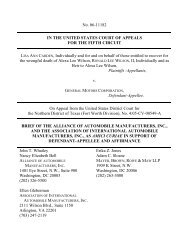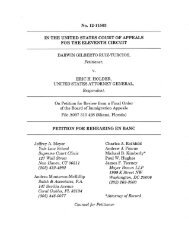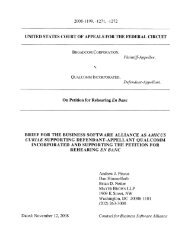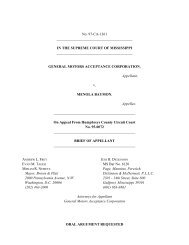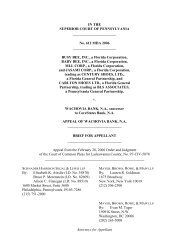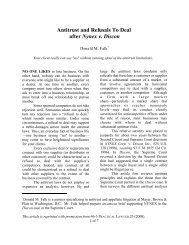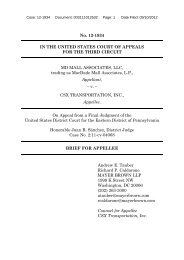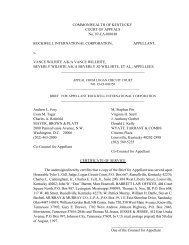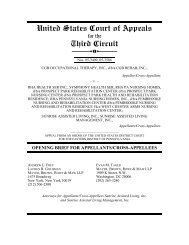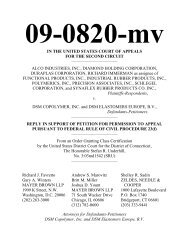No. 5-99-0830 IN THE APPELLATE COURT OF ... - Appellate.net
No. 5-99-0830 IN THE APPELLATE COURT OF ... - Appellate.net
No. 5-99-0830 IN THE APPELLATE COURT OF ... - Appellate.net
Create successful ePaper yourself
Turn your PDF publications into a flip-book with our unique Google optimized e-Paper software.
— was injured by the alleged deception. See Fibreboard Corp, 893 F.2d at 712 (rejecting<br />
plan to try 3,000 asbestos claims on a class basis because doing so would change the<br />
substantive law applicable to class members’ claims by effectively excusing them from<br />
proving that their individual injuries had been caused by exposure to asbestos).<br />
C. The Circuit Court Applied The Wrong Standard In Concluding That A<br />
Class Action Was A Fair And Efficient Way To Adjudicate This<br />
Controversy.<br />
A class may not be certified in Illinois unless the court properly determines that a<br />
class action is “an appropriate method for the fair and efficient adjudication of the<br />
controversy.” 735 ILCS 5/2-801(4). The circuit court described this as a “flexible”<br />
requirement that does not require proof that a class action is the most efficient way to<br />
proceed. A. 34. The court concluded that plaintiffs had met their burden under this<br />
subsection because a class action might be “the only practical means for State Farm<br />
policyholders to present their claims and for State Farm to achieve finality as to their<br />
claims.” Id. The court also concluded — without any explanation — that the proposed class<br />
adjudication was manageable. A. 37.<br />
The circuit court’s view of the appropriateness requirement was wrong as a matter<br />
of law. The Illinois Supreme Court has made clear that the Illinois statute, no less than<br />
Federal Rule 23, requires the plaintiff to demonstrate that a class action “can best secure the<br />
economies of time, effort, and expense.” McCabe, 75 Ill.2d at 468-69. It is thus not the kind<br />
of endlessly “flexible” requirement the circuit court supposed it to be.<br />
Furthermore, the circuit court erred by focusing exclusively on the statutory<br />
requirement of “efficiency,” while completely ignoring the equally important requirement<br />
-67-



